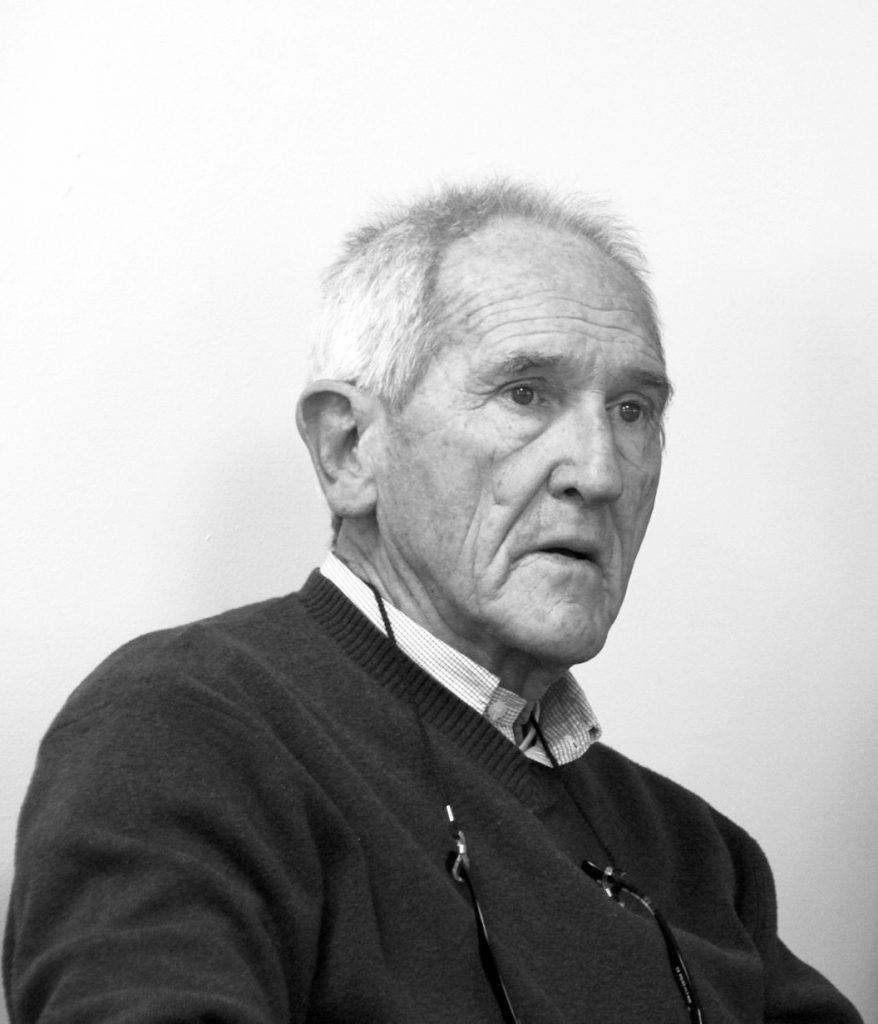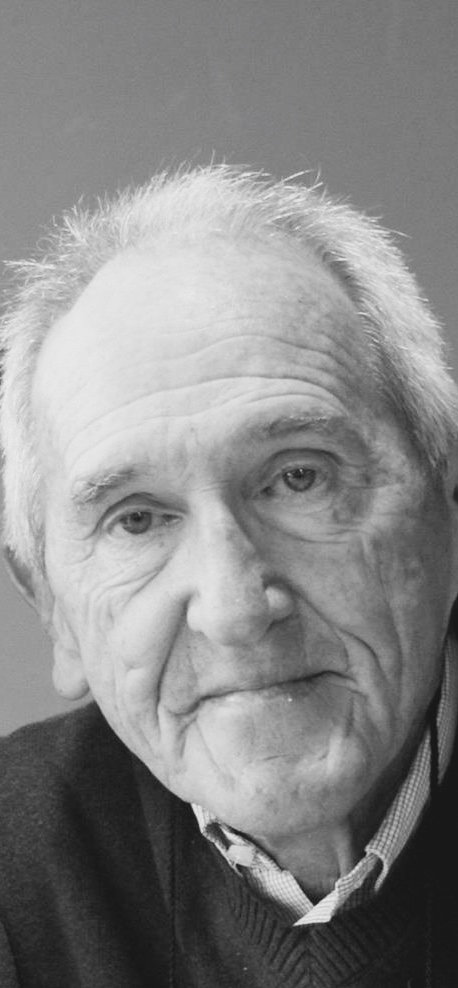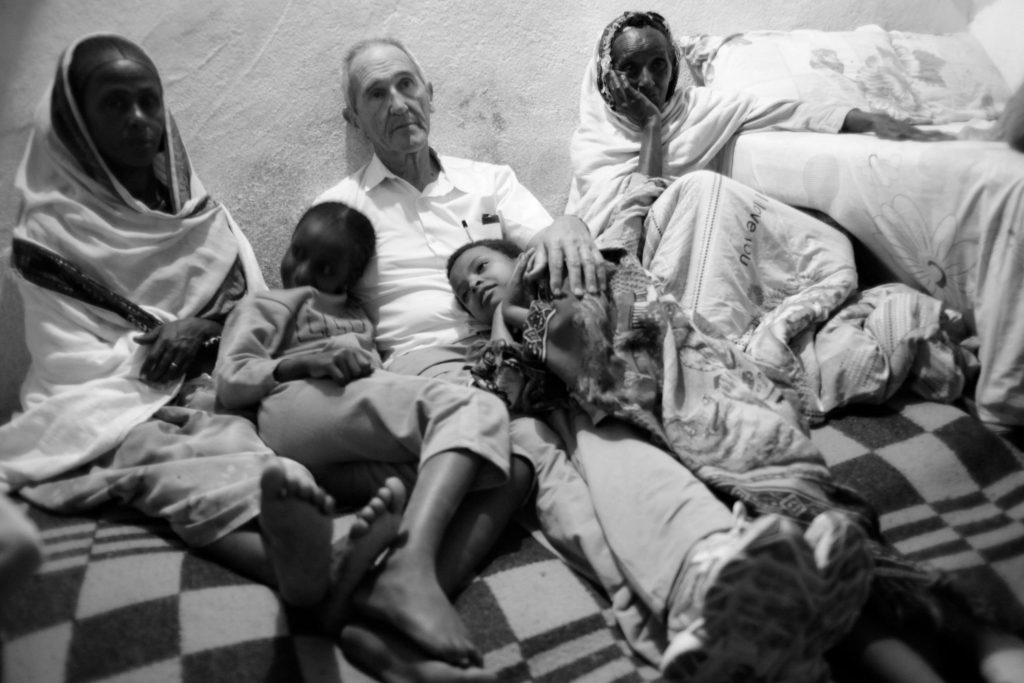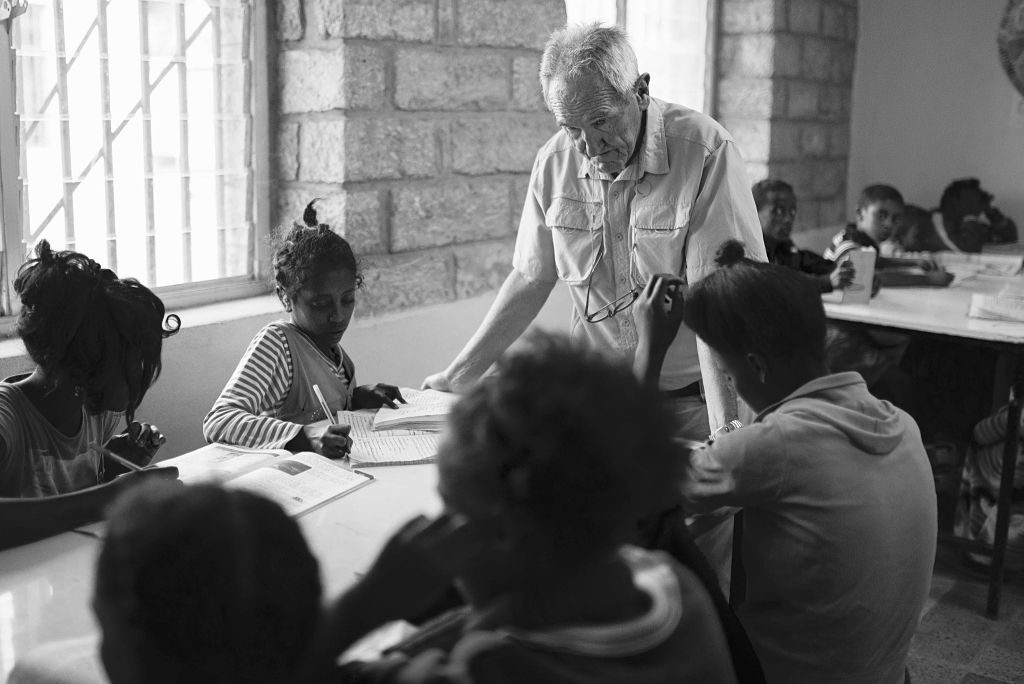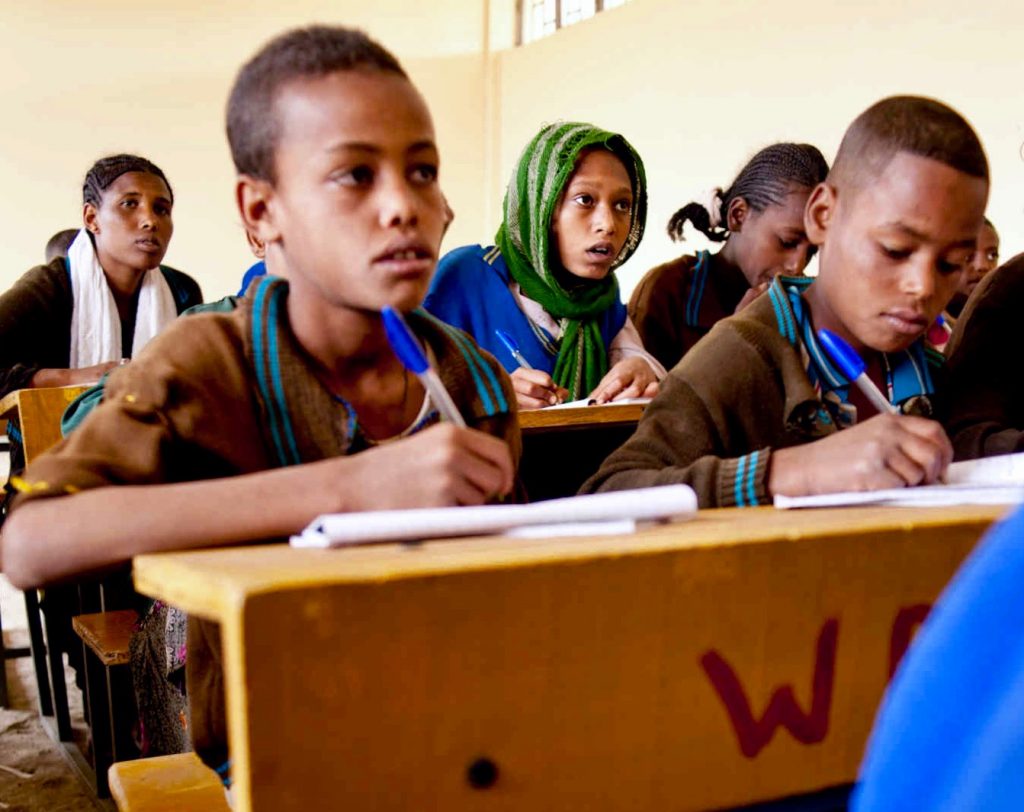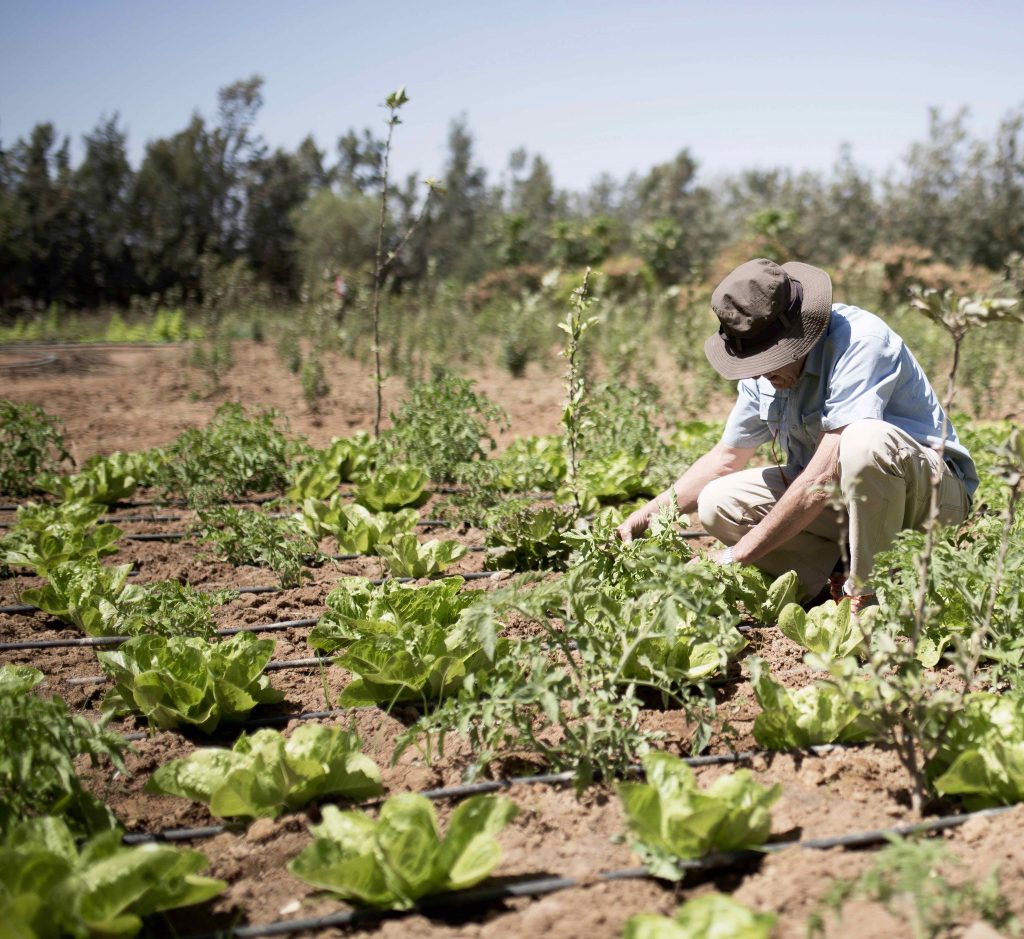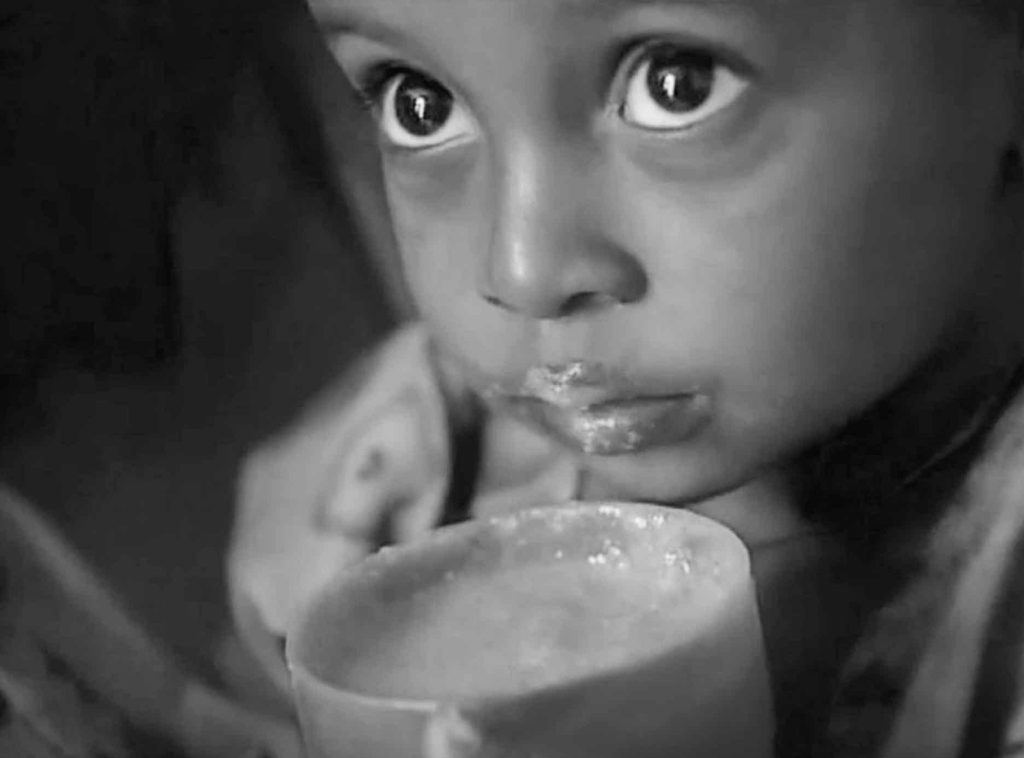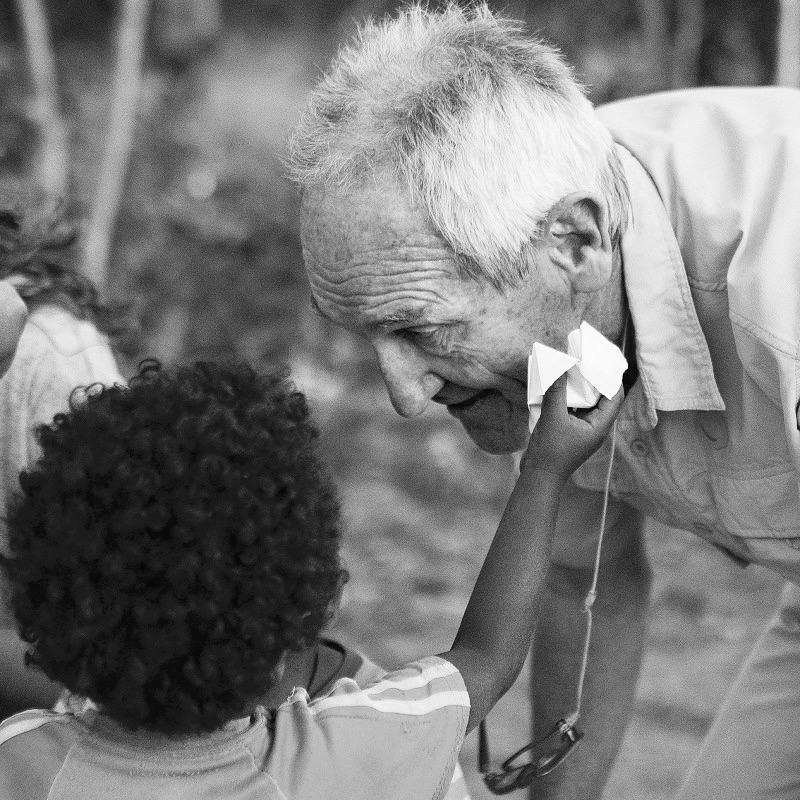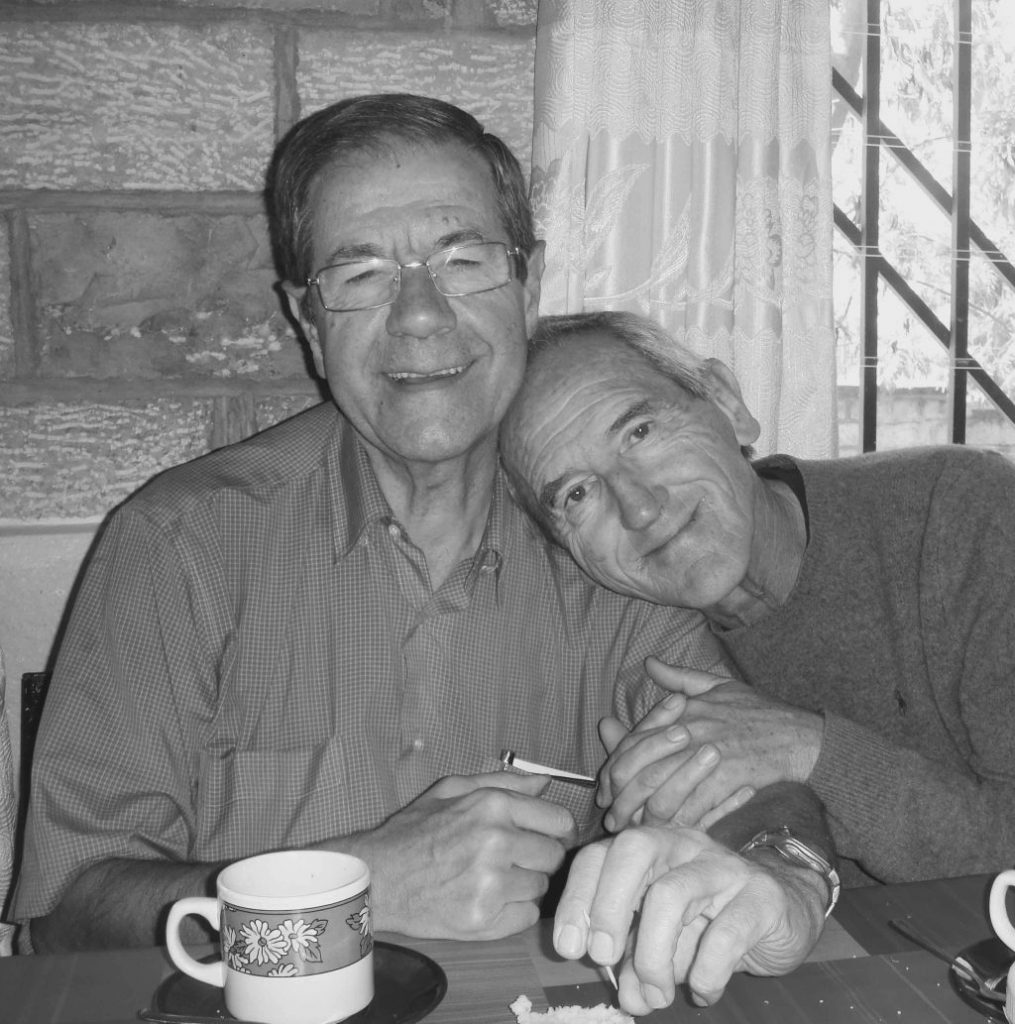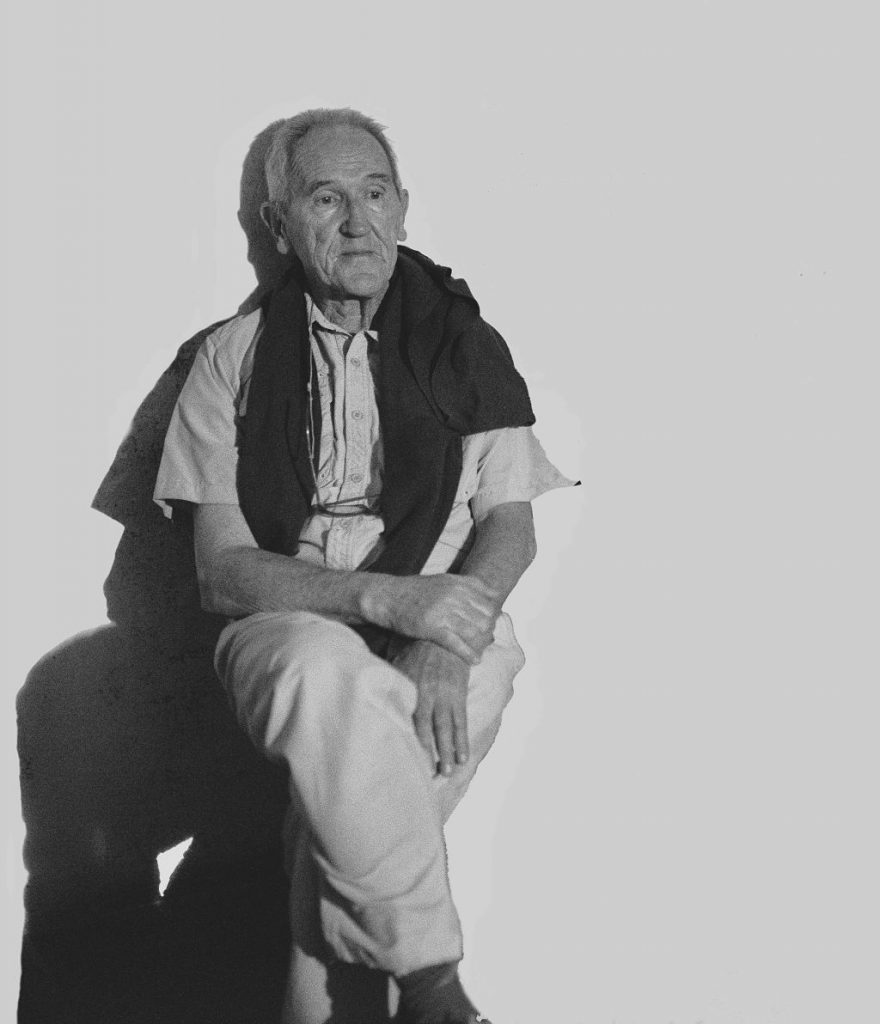Angel Olaran is Abba Melaku in Ethiopia
He is the ‘guardian angel’ of the orphans of Wukro. Angel Olaran is Abba Melaku in Ethiopia. That’s what they call him and it means ‘angel father’. He has spent a lifetime of cooperation in Africa. From Tanzania to Ethiopia, where he has transformed the desert area of the Tigray into a habitable place. The mission he created in Wukro has become a reference. Angel Olaran helps Ethiopia with projects that help orphans and vulnerable people in Wukro. He has watched over thousands of vulnerable people in need and helped them to live. He has earned the admiration and esteem of everyone. For this reason, we explain here who he is, his facts and his work. From the CIS Angel Olaran we continue, along with other NGOs and associations, to give him support.
Who is Angel Olaran?
Angel Olaran Esnal (Hernani, Guipúzcoa, May 17, 1938), fifth of six children of a very Catholic family. Her older sister, Maria Rosa, became a nun following in the footsteps of a maternal aunt, ‘Carmelita Descalza’. And a great-great-grandmother who entered a convent of the ‘Agustinas’ with one of her daughters. He belongs to an ecclesiastical institution and serves the Catholic Order of the Missionaries of Africa (White Fathers). For more than 45 years, it has been pushing the wheel of Africa’s development.
Angel is a man of integrity who has chosen a hard world and who speaks slowly with just, simple words. But he is the engine of a great change in one of the poorest places in the world. We are aware that life is short, but changes and improvements take time. And after working in the African continent, he has learned that you don’t achieve anything if you go against the clock.
He has a great vocation of giving in to the fatal attraction he has always felt in that part of the world. First it was in Tanzania for 20 years. He worked there since 1970, with the Wanyamwezi tribe, the Sons of the Moon. In 1991 he took anIslamology course and was asked to go to Ethiopia, where he has since tried to merge with the land and to win the fight for the lives of the thousands of orphans he has helped.
Principles and objectives remain intact over time thanks to all his energy and commitment. Much of the success of Olaran’s initiatives is based not on mere charity but on organizing people to defend themselves. Let human feelings of equality, justice and fraternity arise.
Motivation to become a missionary
He remembers that at the age of twenty he had “a personal experience with God. A matter of seconds or maybe minutes, I couldn’t say. But touching the untouchable was one of the strongest experiences of my life and it marked me”. Also, because “I suppose I had seen young people who were volunteering for missions. The first idea was to collaborate in some project for 2 or 3 years. Then I got in touch with a group of missionaries who worked exclusively in Africa and the idea of being a priest and for life matured. And I’m still there, I’ve been there almost 45 years and I’ll stay there. He is very clear “Africa has always inspired respect and admiration and has helped me to discover what I am”.
Angel Olaran is the ‘guardian angel’
The work he does is that of a ‘guardian angel’. He is concerned if orphaned children, destitute young women, malnourished and destitute families, will have a dignified life against all odds. Unfortunately, hunger, drought, AIDS or tuberculosis often prevails. A fate that worsens as its position on the map descends into situations of extreme poverty. He wants to give them a future to fight for and bring them closer to quality of life. Help them to “LIVE”.
The dream of ‘Abba Melaku’ (Father Angel) was to end hunger in Wukro and to devote his efforts to increasing food security, a general problem in Ethiopia. Always very clear always in his statements he says: “The right to eat cannot be negotiated. The First World is crushing us”.
Going back to the beginning: Building the Saint Mary Mission and the School of Agriculture
He arrived in Mekelle, in the Tigray region in northern Ethiopia, in 1991 together with another White Father, José Luis Bandrés. There was only one tree on Wukro’s land and today across the street are the orchards of the School of Agriculture.
He arrived in Ethiopia with a mandate to establish a secondary school. In that year a number of opposition guerrillas defeated the Stalinist military government and ended the war. After a few years, together father José Luis Bandrés, he built and launched the Mission Saint Mary. The Mission has become the soul his work. At that time, there were only eight secondary schools in the Tigray region and there was no social organization in Wukro.
External aid
They built the Mission and the School of Agriculture with money from the German NGO “Misereor” and ‘Manos Unidas’ on the outskirts of Wukro. It was built on an area of land of about 8 hectares of wasteland that the new government offered to the Catholic bishopric. The Stalinist-military regime nationalized all the soil of the country, and the current regime has kept it that way. On the ground there was only one tree and today the Mission is a set of rooms scattered among trees, walks, flowerbeds, shrubs, etc. Across the street are the orchards of the School of Agriculture.
Angel Olaran recalls that “when I arrived in 1991 at Mekelle, the capital of Tigray, at the airport there was a container, a table, a chair and weight, to weigh the luggage and a man who took my luggage. There was nothing else. In Mekelle 25 years ago, there was no bus, no car. Because there was no asphalt, there was only one paved street, the main road. They didn’t have more than 4 kilometres of asphalt, very little”.
There was only one tree
He does not forget that “around 1985, the local population asked the bishop to open a secondary school. We started at the end of 1993 and in 1995 we gave the first classes. In first grade, only 15 per cent of the pupils attending class in secondary school were girls. And now there are high schools where girls make up more than half. Where we have built the school is a place of 8 hectares in which there was only 1 tree”.
On the tree, he comments: “It was an Acacia tree and locals called it “the Derg thorn” making a parallel between the invasive properties of the acacia. Wich didn’t allow any other vegetation to sprout around it destroying the fields. A the Communist Derg regime that destroyed the few public services there were. Then there was weed, which even goats didn’t eat. In Wukro there were 2 primary schools and 1 secondary school”.
Children out of school
The Basque missionary explains that “the majority of children didn’t go to school and in high school there were very few young people. There were children on every street corner. By all accounts, education was abandoned. Twenty-five years ago there were supposedly three universities throughout the country; now there are more than 35. In Wukro the secondary school was for the whole area and there were hardly any primary schools in the villages. In 1991, the war ended, and they began to reorganize the country. They started almost from scratch. There were no bikes, no cars and the government had no cars. The houses had no windows and their roofs were made of uralite. In Wukro we only had one car for the school that we used as an ambulance and on other occasions”.
From the year 2000 Secondary school changes into a professional one
“In the year 2000 we changed from high school to vocational education because when peace came the government did not build any more schools and the private sector began to build secondary schools. And that year 750 students attended classes, of which 350 went to day classes and the rest at night. With peace people also began to organize little by little. In education the government began to train teachers because they founded a new university. There is now a well-established system. For example, in Wukro there are 3 secondary schools and 2 polytechnics, where 10 or 12 specialities are taught. There are also 6 primary schools (from 7 to 15 years) and kindergartens. I would say that the the children of Wukro have now 100% access to education. Education is firmly established in Wukro”.
The problems he encountered on his arrival came from so many fronts that the situation was dramatic
The Mission proved to be a vast and magnificent complex. But the problems came from many fronts: the nearly 30 years of war, the AIDS epidemic, which before the vaccine killed 13,000 Ethiopians a year, and the great famine of 1984, only 7 years earlier, had shattered the family fabric of society. Women with children abandoned by soldiers or husbands who emigrated to the capital, Sudan or Arabia in search of work and, in the process, forgetting the family. Children were also expelled from Eritrea because they were children of an Ethiopian father or mother who had arrived on foot across the mountains.
In addition, the high percentage of natural birth in the country (more than seven children per woman). Or simply general demoralization, which made it common for men to easily change the woman with children for a younger one…
As a consequence, all this left an immense number of children without a father or a father or parents and, needless to say, malnourished and often sick. The worst thing about the desolating landscape of his arrival in Ethiopia was this “severe” malnutrition suffered by the population, especially children: “There were children who couldn’t even hold their heads straight, refused food and had no strength to cry. The situation was dramatic”.
Soon, the White Fathers found children who had nowhere to go. The option seemed clear: to build, in addition to the school and the Mission, an orphanage.
Angel will be the ‘guardian angel’ of the orphans of Wukro
Although the option of building an orphanage seemed clear, one fact changed everything. One fact changed the approach. When five fatherless brothers also lost their mother, a group of neighbors came to the Mission saying that, if it was financially possible, they would protect and care for them. The offer was repeated several times by neighbours of orphaned children. From here came the happy idea of supporting these neighbours financially so that they could take responsibility for those children, a much preferable solution to an orphanage. Some of these children started calling their protectors father>> and mother>> even after they had moved to another house; others were actually adopted by families as their own children.
The reason why this system was considered the best was that the siblings were still united, forming a family, and that the eldest (who could be 10 or 12 years old) acquired the responsibility to act as a parent for the littel ones: manage the money, put order to their lives… it worked (and still works) great and it was a great joy. These families were monitored weekly by a group of women.
They all form a “family of families” and Angel is the father-or, now, grandfather-of hundreds of children.
Everything changes with your arrival
Angel Olaran is Abba Melaku and he is the guardian angel of Wukro’s orphans, given that upon arrival his daily struggle has been that “these orphaned children, who have put themselves in our hands, have their basic rights until they are older and can fend for themselves. We try to have the most basic things covered such as food, health, education, clothing, a roof above their heads, … They are orphans because their parents have died of AIDS or died in wars.”
Angel recalls: “We began to meet families who took care of children whose parents had died. They could look after them and take care of them if they were sick, but economically they had no money to support them. That’s why started coming to us. Some still have their grandparents or aunts, but others have no one and live alone. Normally, 14-year-old boys are the oldest in the family, but they have the support of the neighbourhood”. If they continued in their usual homes with the help of their neighbours, they would be more integrated in society. These are the reasons why they decided not to admit them in an orphanage. Thus, the idea of creating a revolutionary system of guardianship and child protection arose.
Every evening, after dinner and when it’s already dark, Angel goes out with his flashlight to visit some of the families of “his” orphans. This happens day after day.
Education is his main concern
He blindly believes in human quality and his main concern is education as a fundamental tool for providing opportunities for young people. Affectionate and rigorous at the same time, he aspires to create a new generation responsible both in their personal and family lives and in the workplace. “A good education is the best we can offer them”, he explains.
Education is essential and most children go to school, except for some of them who’s family situation prevents them from going because they have to take care of younger siblings or have to work. This is not the case of Angel’s orphans. At the end of their compulsory primary or secondary classes (they go to school), instead of going to do homework at home they go to the Mission. They are orphans between 6 and 14 years old who <<without supervision>> and without anyone forcing them to do their homework. High school kids play big brothers. And on Fridays, Angel gathers them all and asks them to show him the notebooks and asks them about the notes of the week.
Establishment of the Wukro Social Development Program
The number of families of orphaned children was growing rapidly, and it was already impossible for Angel take care of all of them, as they increased to more than two thousand, in addition to everything else that involved rents to be paid, financial aid, care for new-borns, the sick, the elderly, etc. So the administration passed on to the Wukro Social Development Program, which takes care of orphans and gives them what they need. In addition, they also take care of helping as much as they can other collectives also very needy and they do so in agreement with the city council (Werera).
The Wukro Social Development Program (WSDP) is also responsible for other activities. Perhaps the most significant is the review classes on Saturday mornings in the high school building. At the same time pay teachers to do the overhaul with all the orphans who are required to attend.
The Wukro Social Development Program (WSDP) operates mainly with the help of NGOs’, most of which are for orphans.
Father Angel Olaran has been decisive and the architect of the solution of life in Wukro
The transformation of the area
He has transformed the desert area of the Tigray into a habitable, green place with water and social structures for one of the most severely affected populations. And what’s more, with a minimum budget he achieved a school with great results.
The high school that the White Fathers built and inaugurated had several branches: high school, agriculture and commerce. It soon became clear to them that the Tigray urgently needed to prioritize agriculture, as a matter of life and death.
The deforestation of tropical forests had caused droughts and the ensuing terrible famines. Wars and the need for firewood to boil not drinkable water or to cook ended up leaving the landscape naked as a skeleton. Difficult to recover, because the summer rains take away the little land that remains between the rocks.
Reaping the fruits of his creation
The School of Agriculture is a university school with permanent collaboration with the local administration, open to the realities and needs of the two or three thousand peasants in the region. Workshops and dossiers this helped them in the improvement of the tasks of the field (orchards, fields, fruit trees, livestock rearing and marketing). Over time it has become a benchmark in that Ethiopian region. The group’s co-responsability is essential to guarantee the first necessities, since bond with the land and the knowledge of agriculture are what ensures survival.
The magnificent orchards have become an experimental model to imitate and are located across the street from the Mission. Therefore, the changes have also been environmental in the Tigray area. The social fabric was compacted and extended to create these innovative orchards, driven by reforestation measures, or, according to the Social Services, integrative actions have been carried out, such as the cooperative for AIDS patients that produces and sells honey.
Get a school with great results, with a minimum budget
The land given by the community in which the school was built, “currently covers the areas of agriculture: plants and animals, as well as computer science, accounting, general mechanics, electricity and plumbing. These branches are approved: officially by the government. In non-accredited training, they only receive a certificate from the school for: music, painting, sculpture, cutting and tailoring, embroidery, martial arts, circus. 750 students attends; 350 attend in day classes and the rest at night”.
Angel Olaran is proud that “having a minimum budget the results are great. Generally, our graduates are highly appreciated in their jobs. We get reports of their work engagement. Our school is frequently visited by peasants, rural schools, professionals and politicians of the country. This past course the Minister of Environment and Reforestation visited us, accompanied by representatives of the ministry of all Ethiopian regions. We are visited by national and international university staff”.
Talking to property
Father Angel Olaran says that “according to a report presented on national television, we are one of the two national institutions dealing with the environment. When we started buiding the school in an area of 8 hectares there was only one rain-fed tree. Currently we have about 40 thousand plants. We have been pioneers in drip irrigation, composting, fruit trees, vegetables, irrigation ditches, garbage collection, solar wells and a windmill. We collaborate in improving the lives of peasants, facilitating access to water for domestic use and irrigation; improving the quality of domestic animals; giving microcredit or better seed quality. We insist on organic farming”.
The missionary points out that “another achievement is our collaboration with the Administration and different official services. All our projects are designed and implemented in close collaboration with the departments of social welfare, agriculture, education, water, reforestation…”.
Government support for education
Father Angel Olaran is proud that “now there are also many young people going to university and students with good marks and it is the government that takes care of their education and stay, they pay everything except travel. There are girls whose parents can’t pay for their trip, so for about 7 or 8 years we’ve found a solution together with the Wukro Women’s Association”.
“The association knows well the whole situation of families and give money to young people. This year about 20, who’s parents cannot afford it, will go to college. Social welfare also came with the same demand, there were about 10 youngsters who couldn’t go and we also helped them until they finished college. Ninety-five per cent of employees do not reach the age of 35, which is when all this began. They were not able to access university education before”.
Asking him about those things that he would change, if he could go back, he replied: “I don’t think I would change anything, since we have been giving solutions to the situations as they emerged. Priority has been given to such situations. What I would have liked to have done was to focus more on motivations, attitudes, quality of service, closeness and attention to the poor”.
Is it Poverty?
Angel Olaran is one of those people who can boast of having a speech of their own. He always speaks clearly and one understands everything: “To understand poverty it is necessary to touch it, to smell it, to embrace it. It is impossible to feel or understand what deep poverty means through television programmes, photos or newspaper articles”.
“You have no idea what extreme poverty means. When your child’s life gets out of hand because you don’t have anything to feed him or your children, instead of going to school, have to start from a very young age and pick up bread on the streets”.
He regrets that humanitarian aid is only palliative for the sufferings of those who pay for the consequences of a world economy based on the most radical injustice. And in an unequal distribution of wealth that makes the wealthy richer every day and the poor still poorer. This general malnutrition is the consequence of an unjust, incomprehensible and absurd economic system.
“Helping those who survive in misery also serves us because it makes us aware of injustice, allows us to pay part of our debt, share with others and know them”.
“The poor are not the object of our charity, but subjects of a freedom”.
More reflections on poverty
And a more forceful lament, is: “…faced with so many injustices and with millions of people dying each year due to poverty, it is inevitable to ask if God has escaped his creation from the hands”.
When talking about possible solutions to poverty, he is resigned and says that “if poverty is not eliminated, it is because there is no interest of doing so. Hunger is a programmed genocide, tolerated. You have to call things by their names. And if words have become meaningless, a new language will have to be invented”.
Angel Olaran resigns himself and it saddens him to explain what happened to him: “When we were preparing clothes that people had given us for the orphans, when we chose clothes for these and when they were doing well we realized that in the neck part it was clothes for 2 years… There is a lot of passive hunger that makes it seem that the child is fine, but when you look at his body you realize that he is not as he should be at the age of 10 and many times it is because the food is not adequate. This is sad”, says the Father.
It is not so much what is given then what is received
For 45 years Angel has been helping others: “I think it’s not so much helping others. It’s sharing, living with others. It’s a relationship where you feel relaxed because you’re not giving, they’re not coming to take advantage of you. When the person comes to you and looks at you and smiles, he already gives you so much that all you can offer corresponds to what they offer you”. What you have to try is to establish human warmth. People who come to you have a need, but the beautiful thing is, when they only come to see how you are, how your day has been.
The Saint Mary Mission and cooperating volunteers in Wukro
Since its inception, the mission of Saint Mary has received visits from aid workers and travellers, who find there a place where their help has a direct impact on the community. “People who come and get to know the project create an affinity with this place. Then they ask themselves: What can we do? So what they do is to come together and create partnerships to help the project”, he says.
“When volunteers come back to Wukro, they always ask how the children are. That means that they realize that here still exists what we have already lost in Europe: nature, spontaneity, the beauty of children, their smiles, they come running to hug you…”, he states.
Absolute recognition and love from all over the world
In all his activities, Ángel Olaran not only acts as a promoter and organizer but as a father -or goddfather- who loves and cares for his family, That is how he is considered by the population, who affectionately nickname him ‘Abba Melaku’ (Father Angel). “The street is my church and the people’s houses are muy altars”, he proclaims.
Father Angel Olaran was awarded on July 5, 2015 the Doctor Honoris Causa for the University of Mekelle for his work in Ethiopia. A credit for his career in the economic and rural development sector in the Tigray area in northern Ethiopia.
‘Abba Melaku’ (Father Angel)
He has had his recognition also in Wukro, where the street that leads to the Mission Saint Mary bears the name of Abba Melaku. It is also the name of the award Reconeixement Ànima Abba Melaku to reward a world figure. Some environmental and reforestation projects implemented by Angel in the Tigray have been awarded recognition and are a reference in Ethiopia.
He knows the laurels, but he shuns boasting. He is uncomfortable with praise. The immense work he has done during these 25 years in Wukro has been so great that all the recognitions they can give him will remain small. But known for his humility, this does not take away his sleep. He hopes to continue living many more years to continue his great humanitarian work, understood as a way to achieve social justice.
Past, present and future
The projects that have been carried out and those that are under way in Wukro are of two different kinds, and have been carried out with very different budgets. They have been made possible thanks to funds financed by European NGOs of different relevance, both religious and non-religious. The success has been the real collaboration between the parties involved in the projects and the participation of the target populations and making the project feel like one’s own and therefore sustainable. This has been vital in Wukro’s transformation.
Angel Olaran only seeks to overcome the hardships of those who suffer. He is an example of generosity that deserves all our attention and help. In the mission, he develops activities in education, health and assistance to those most in need. He has taken hundreds of girls out of prostitution, cared for thousands of orphans, AIDS patients and tuberculosis sufferers. He has developed a micro-credit system for small businesses. He is also responsible for programmes to assist the elderly and he tries to find work for the unemployed.
Memories about Àngel Pujol
The missionary’s work captivated Àngel Pujol on his visit to Wukro at the end of 2005. Father Olaran explains about the ‘soul’ of the CIS Angel Olaran that “nothing happened without him noticing. He had a delicate way of looking at things, enjoying them and always improving them. He enjoyed any job well done. He could eat with the most influential people and cried if he saw a barefoot child. It was always very hard not being able to speak English. One of his goals was to eradicate hunger and the lack of schooling for children. He was a very popular person”. We spent almost 10 years building up life expectancy together.
Currently, funds have been reduced so much that even the continuity of some projects is at risk. This is why he encourages to continue donations, because “what you don’t give, never reaches the one who needs it the most”.
Whether contributions arrive in Wukro
Angel Olaran doesn’t understand why “we can ask ourselves if our help reaches its destination, but at the same time we never think about these 2 or 3 Euros we spend choosing a more expensive vine. That doesn’t worry us. I find this embarrassing”.
In order for Ángel Olaran to maintain the current humanitarian project, he needs to be able continuing to count on external aid. But these are increasingly directed towards a model of self-survival learning so that they are less vital. The dream is to make sure that someday, if possible not too far away, they are not indispensable.
From the CIS Ángel Olaran we support him in part thanks to the help of our partners.
Common concerns and objectives
The goal of CIS Angel Olaran is to do our utmost to help Father Olaran safeguard the most vulnerable in Wukro. This is thanks to institutional grants and contributions from partners or donors. Also, thanks to the funds raised by the foundation throug the different activities that are carried out in support of the missionary.
“My personal concern is the need to get 40,000 € per year for school maintenance. And another 130,000 € of to support 650 orphans, the elderly, and people affected by AIDS”.
After a life of cooperation in Africa, he doesn’t to return to Spain and says: “My future is in Wukro. Every day there are things to do or people who require my attention”.
Drought and water accessibility
Water has become a kind of obsession for Angel and it’s not surprising, after having experienced closely the harshness of the successive droughts. We can recall his emergency call because of the drought in Kelte Awelaelo.
Hydrological projects and those related to agriculture and biodiversity are always on the table so as not to lose a drop and achieve food security. This isn’t an easy task, because the problems are still there. “Much remains to be done in rural areas where families survive from the soil. We shouldn’t be forget that more than 85 per cent of the Ethiopian population lives in rural areas. The aim is to ensure that these families have three harvests a year by storing rainwater in reservoirs and wells, building canals and intervening in torrents”.
Reflections on the world in which we live
Ángel Olaran believes that the rich countries have entered a spiral of consumerism and superfluous needs. “First World society is a victim of its own development, because it is leading to a brutal individualism. It seems to be of interest to live in ignorance. If all would live all at the pace of the First World, it would take three planets to produce all the necessary raw material”.
On the other hand he believes that “people of Africa are used to not having and don’t have so many material ambitions. They have enourmous family support, strong grass-roots community structures and a greater sense of solidarity”. He has been able to reach people, “I have been able to discover the human values of the people. The houses, for example, may be very humble and poor, but in reality, they are museums of dignity“.
He is forceful in stating that “the crisis that diminishes work in Europe, there (in Ethiopia) creates death, and even so one doesn’t perceive more sadness”.
Thanks for reading about Angel Olaran
Thank you very much for your interest in knowing the facts about missionary Ángel Olaran in northern Ethiopia. If you want to read more information you can read our book: What can we do? Or you can collaborate making a donation through our web or transferring money.
Donations
If you would like to kindly help us in any of our projects or make a donation, please note that the Private Foundation Centre d’Initiatives Solidàries Ángel Olaran, is included among the entities benefiting from patronage according to the provisions Act 49/2002 of December 23, on the taxation of non-profit entities and tax incentives for patronage.
You can either donate straight through our web or use our bank account.
Our banking details are as follow:
CODE SWIFT: BSCHESMM IBAN: ES8300491886742010703392
Our Foundation will issue an annual certificate with your annual total donation, from which under the Charity Act. Ley -49/2002 you will be able to deduct a 30 % if you donated as a civil person, or 35 % deduction of the Corporation Tax in case of a legal entity. You will always be able to make the deduction, if you comply with the conditions.
Last but not least, we want to thank you for the time you shared with us reading this document, and we would like to assure you that we will continue fighting for a better world as hard as we did until now, with all our strength and hope.
Thank you so much!




